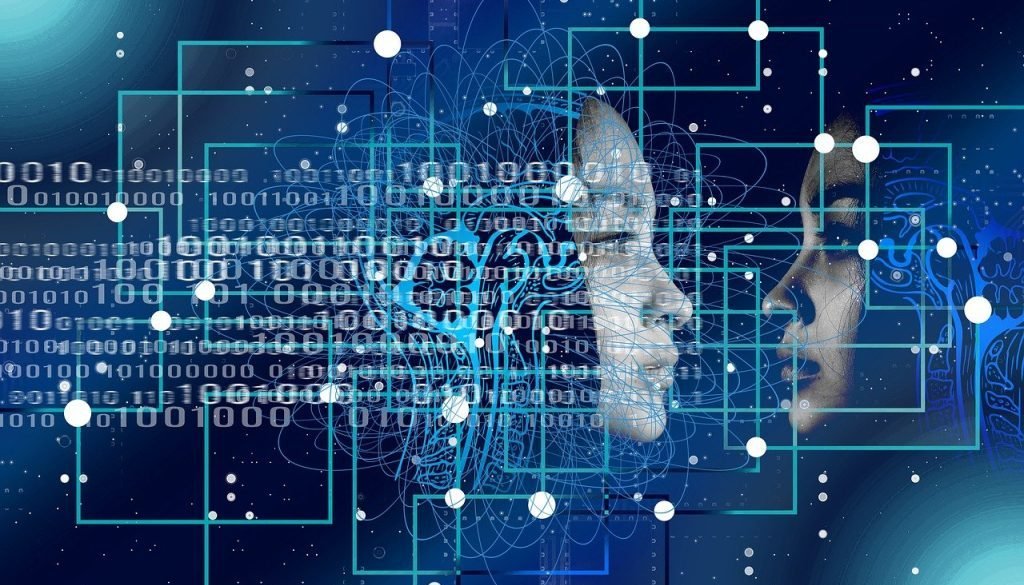The Impact of Artificial Intelligence on the Future of Work and Society
Introduction
In recent years, the rapid advancement of artificial intelligence (AI) has sparked both excitement and apprehension about its potential impact on the future of work and society. AI, the simulation of human intelligence in machines, can revolutionize industries, streamline processes, and improve efficiency. However, its integration into various sectors raises questions about job displacement, ethical considerations, and social implications. This article delves into the profound impact of AI on the workforce, economic landscape, and societal dynamics while exploring strategies to harness its potential for the greater good.
AI and Automation in the Workplace
One of the most significant ways AI shapes the work’s future is through automation. AI-powered machines and algorithms can perform repetitive tasks with greater accuracy and speed than humans. This automation could revolutionize manufacturing, logistics, and customer service by reducing operational costs and increasing productivity.
While automation streamlines processes and boosts efficiency, it raises concerns about job displacement. As certain roles become automated, there is a growing need for upskilling and reskilling the workforce to adapt to new challenges and opportunities created by AI.
The Rise of AI-Augmented Jobs
Rather than completely replacing human workers, AI is augmenting their capabilities in various fields. AI tools can assist professionals in data analysis, medical diagnosis, and legal research, enabling them to make more informed decisions and improve overall outcomes.
AI-augmented jobs have the potential to enhance human creativity, problem-solving, and innovation. By leveraging AI as a supportive tool, individuals can focus on higher-level tasks that require emotional intelligence, empathy, and critical thinking.
Artificial Intelligence in Education and Learning
The education sector is not immune to AI’s impact. AI-powered educational tools and platforms can personalize learning experiences, catering to individual strengths and weaknesses. Adaptive learning algorithms can analyze student performance and provide tailored feedback and content to enhance their understanding.
Moreover, Artificial Intelligence can aid teachers in administrative tasks, grading, and curriculum design, freeing more time for personalized student interaction. However, the ethical implications of AI in education, such as data privacy and algorithmic bias, must be carefully addressed.
Ethical Considerations and Bias in AI
As AI becomes more pervasive in decision-making processes, the issue of bias becomes a significant concern. AI algorithms are trained on historical data, which can perpetuate societal biases and discriminatory practices. This raises questions about fairness, accountability, and transparency in AI systems.
Developing ethical Artificial Intelligence requires a multidisciplinary approach involving experts from various fields, including data science, ethics, and social sciences. Ensuring diversity in AI development teams and implementing strict guidelines can help mitigate bias and create more inclusive technologies.
AI and Healthcare
AI has shown tremendous potential in diagnostics, drug discovery, and patient care in the healthcare industry. Machine learning algorithms can analyze medical images and detect anomalies with high accuracy, aiding radiologists in providing timely diagnoses.
Additionally, AI-driven research accelerates drug development processes, potentially leading to breakthroughs in treating complex diseases. Virtual health assistants and chatbots are also transforming patient interactions and support systems.
AI and Transportation
Artificial Intelligence is reshaping transportation and mobility with the emergence of autonomous vehicles. Self-driving cars have the potential to reduce accidents and traffic congestion while improving transportation accessibility for elderly and disabled individuals.
However, the integration of autonomous vehicles requires robust regulatory frameworks, addressing safety concerns, and addressing ethical dilemmas, such as decisions in life-threatening situations.
AI in Social Media and Communication
The influence of Artificial Intelligence on social media and communication must be considered. AI algorithms power content recommendations, personalized ads, and even online content moderation.
However, the misuse of AI in spreading misinformation, hate speech, and promoting echo chambers raises serious ethical questions. Striking a balance between personalized content and safeguarding against harmful information remains challenging.
Universal Basic Income and Social Safety Nets
With the potential for job displacement due to Artificial Intelligence , the idea of Universal Basic Income (UBI) has gained traction. UBI proposes providing every citizen with a regular and unconditional income to cover basic living expenses.
While UBI may act as a safety net for those whose jobs are replaced by automation, implementing such a system requires careful consideration of its economic feasibility and potential unintended consequences.
The Need for Lifelong Learning and Reskilling
As AI reshapes industries and the job market, the need for lifelong learning and reskilling becomes crucial. Continuous education and upskilling programs are essential to equip the workforce with the necessary skills to remain relevant and adaptable in an AI-driven world.
Public-private partnerships, government initiatives, and corporate responsibility can promote lifelong learning and support individuals through career transitions.
Conclusion
The rise of artificial intelligence presents both opportunities and challenges for the future of work and society. Artificial Intelligence ‘s potential to automate tasks, augment human abilities, and revolutionize industries is undeniable. However, its integration must be accompanied by ethical considerations, addressing biases, and fostering inclusivity.
Embracing AI’s potential while prioritizing the well-being of workers requires a collaborative effort from governments, businesses, and the broader society. By investing in lifelong learning, reskilling programs, and a responsible AI governance framework, we can harness the transformative power of AI for the greater good and create a technologically advanced and socially equitable future.https://www.techtarget.com/
Related post:
What is Artificial Intelligence (AI)? Definition, Benefits, and Use



